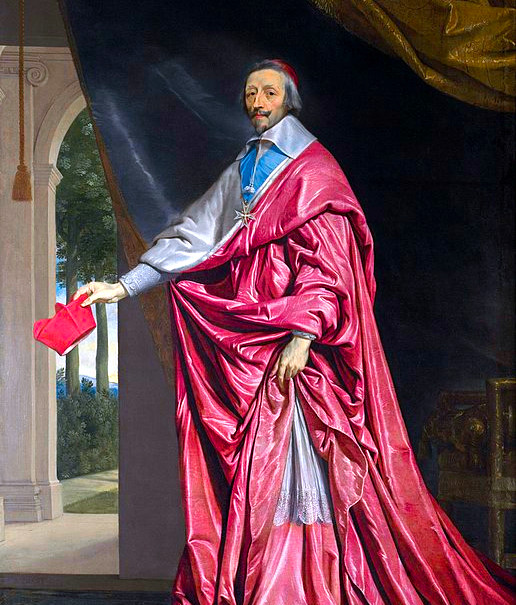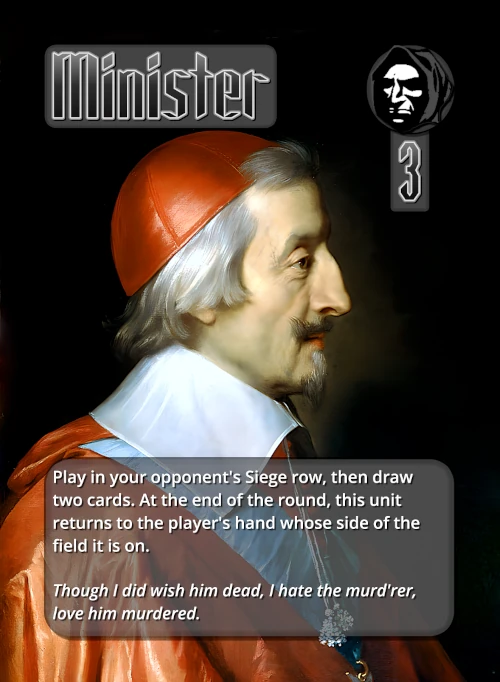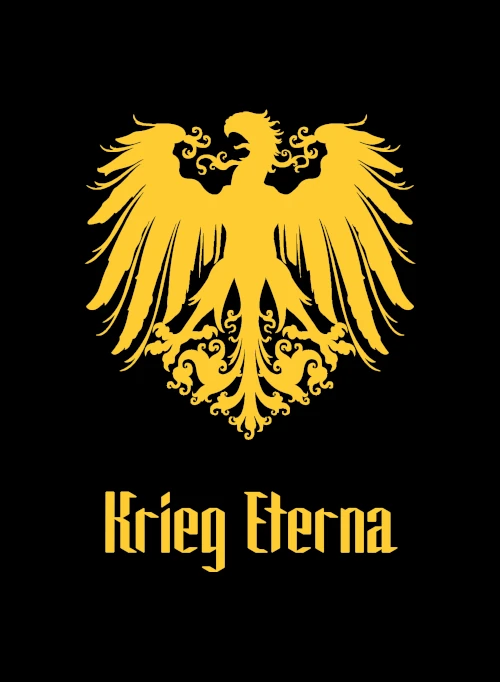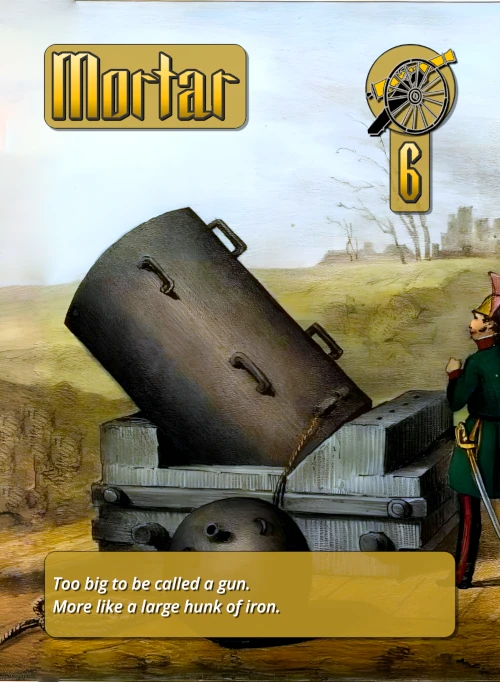Strength: 3
Type: Spy Power
Effect Text: Play in your opponent's Siege row, then draw two cards. At the end of the round, this unit returns to the player's hand whose side of the field it is on.
Flavor Text: Though I did wish him dead, I hate the murd'rer, love him murdered.
Flavor Source: William Shakespeare, Richard III
Artwork: Portrait of Cardinal Richelieu by Philippe de Champaigne (1642)
Strategy:
Spies are a powerful way to stall and obtain card draw, effectively giving you more turns than your opponent; however, your opponent will pick up the spy at the end of the round to use against you. To minimize your opponent’s opportunity for card draw, try to use other power cards to pick up the spy directly from the playing field, send the spy to the graveyard, swap the spy back to your side of the field (so it returns to your hand at the end of the round), or play your spy in the final round of the game. Similar to other spies, Minister comes with the risk of creating adjacency for your opponent, so it is safer to play after your opponent has passed.
About the card:
Gold, soldiers, and a vast network of spies: these were the tools that Cardinal Richelieu used to reshape France into the dominant power on the continent. The chief minister under Louis XIII (see also Traitor King), Richelieu forged French foreign and domestic policy for most of the King's reign. Richelieu saw the Spanish and Austrian Hapsburgs as France's main rivals and sought to undermine them by funding their enemies in Italy, the Netherlands and Germany. At first he did so covertly through secret envoys and treaties and eventually overtly by declaring war on both kingdoms.

Domestically, Richelieu fought to destroy the powerful French nobles and Protestant Huguenots by systematically destroying their castles and fortifications, making it much harder for them to rebel against the King. In a time when most rulers were concerned with religious and dynastic allegiances, Richelieu drove the French Crown towards an impersonal nationalism that has defined much of the modern era as opposed to the personal relationships that governed earlier eras.






